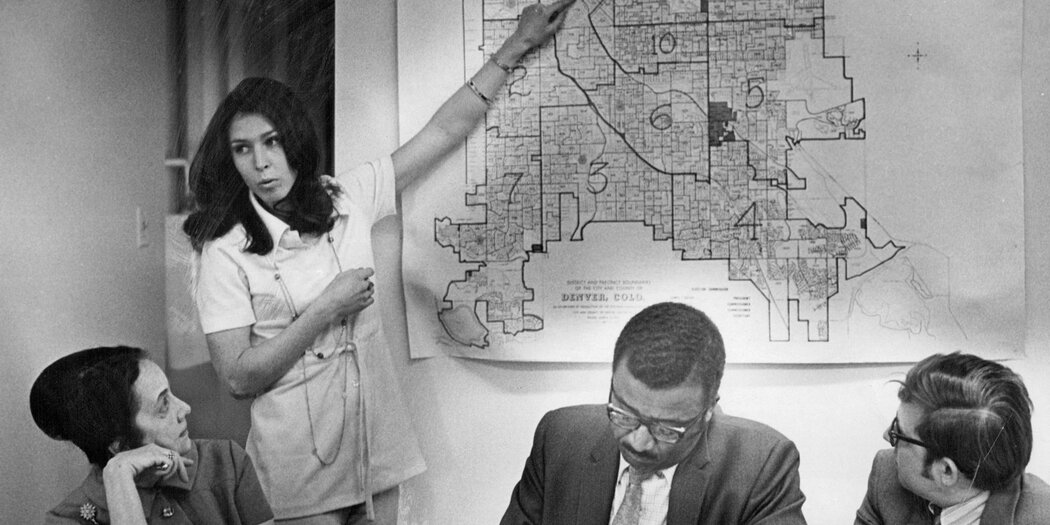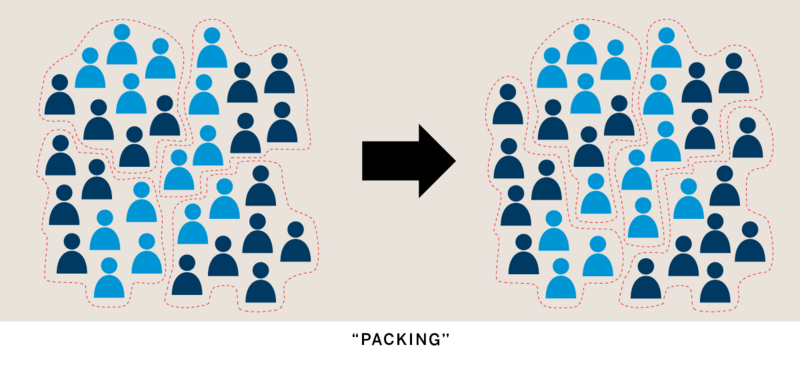
Gerrymandering, the practice of drawing district boundaries to favor one political party over another, has profound implications for the democratic process in the United States. This manipulation of electoral districts can significantly distort representation, diminish electoral competition, and exacerbate political polarization.
Distortion of Representation

One of the primary consequences of gerrymandering is the distortion of representation in legislative bodies. Gerrymandered districts often lead to situations where the electoral outcomes do not accurately reflect the preferences of the electorate. Instead of voters selecting their representatives, the process becomes reversed, with politicians effectively choosing their voters through manipulated maps. This dynamic results in a significant disconnect between the constituents' interests and the actions of their elected representatives. As highlighted by the Brennan Center, “gerrymandering empowers politicians to choose their voters,” leading to maps that create 'virtually guaranteed' electoral outcomes even in adverse conditions for the controlling party[3][7].
Additionally, the Supreme Court's ruling in Rucho v. Common Cause underscored this issue by indicating that partisan gerrymandering cannot be addressed in federal courts, thereby limiting legal avenues for affected voters[3]. This ruling has made it challenging to contest unfair districting practices and has set a precedent that may further entrench partisan biases in district drawing.
Reduced Electoral Competition

The manipulation of district boundaries leads to a decrease in electoral competition. Many safe districts are created where one party has insurmountable advantages, resulting in 'electoral outcomes tend to be less close than the predicted margins'[1]. As many lawmakers find themselves in 'safe seats,' there is less incentive to prioritize the needs and concerns of their constituents. Kosuke Imai, a researcher on this topic, articulates that those in safe districts are less likely to respond to what voters want, contributing to a decline in accountability and responsiveness in politics[1].
Furthermore, the existence of these safe districts can lead to lower voter turnout, as constituents may feel their votes do not matter in elections that are essentially predetermined. The Brookings Institution highlights that electoral reforms aimed at mitigating gerrymandering could be ineffective if the underlying political issues remain unaddressed[2].
Increased Political Polarization

Another significant consequence of gerrymandering is its contribution to increased political polarization. While gerrymandering is often blamed for the extreme partisan divides in American politics, research suggests that it is not the sole cause of this polarization. Instead, scholars argue that the phenomenon of voter sorting—where individuals increasingly live near others who share their political views—plays a more crucial role[2][8]. This sorting creates districts that are inherently homogenous, amplifying partisan divides and reducing the chances for compromise within legislatures.
Gerrymandering can exacerbate this binary division. As districts become more aligned with partisan identities, representatives have little incentive to appeal to centrist voters or engage in bipartisan dialogue. Studies show that representatives in heavily gerrymandered districts often cater to their party's extremes to fend off primary challenges, leading to a legislature that is more polarized than the general electorate[4][7]. This dynamic can create a cycle where the lack of competitive races leads to more extreme political affiliations, further entrenching the partisanship of elected officials.
Impact on Minority Communities

Gerrymandering has particular ramifications for racial and ethnic minority communities. The process often involves packing minority voters into a limited number of districts (packing) or dividing them across multiple districts (cracking), both of which can weaken their overall voting power[7]. This manipulation can dilute the representation of communities of color, making it more challenging for them to elect candidates who reflect their interests and values.
This impact is especially pronounced in areas with significant residential segregation, where political mapmakers can exploit patterns in voting behavior to maximize their party's advantage while minimizing the influence of minority voters[3][6]. The Brennan Center notes that under such conditions, the political power of communities of color can be systematically targeted, reducing their influence in state and federal legislatures[3][7].
Conclusion
The consequences of gerrymandering extend far beyond the manipulation of district lines. They undermine the foundational democratic principle of fair representation, decrease electoral competitiveness, and contribute to a more polarized political landscape. The systemic issues created by gerrymandering call for significant electoral reform to ensure that the political process reflects the will of all voters, rather than the interests of those in power. Without such reforms, the detrimental effects of gerrymandering on democracy are likely to persist, limiting the public's faith in the electoral system and its representatives.
Get more accurate answers with Super Pandi, upload files, personalized discovery feed, save searches and contribute to the PandiPedia.
Let's look at alternatives:
- Modify the query.
- Start a new thread.
- Remove sources (if manually added).